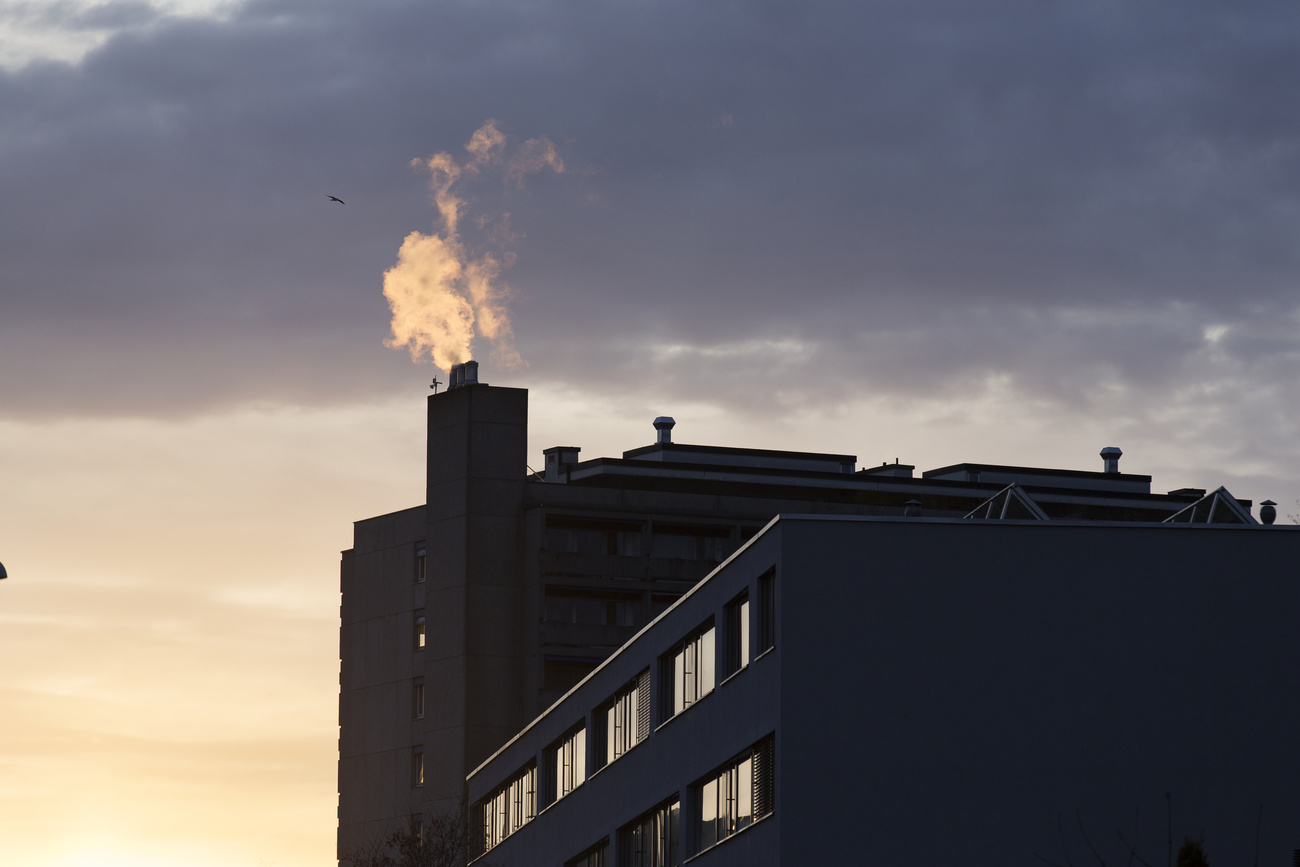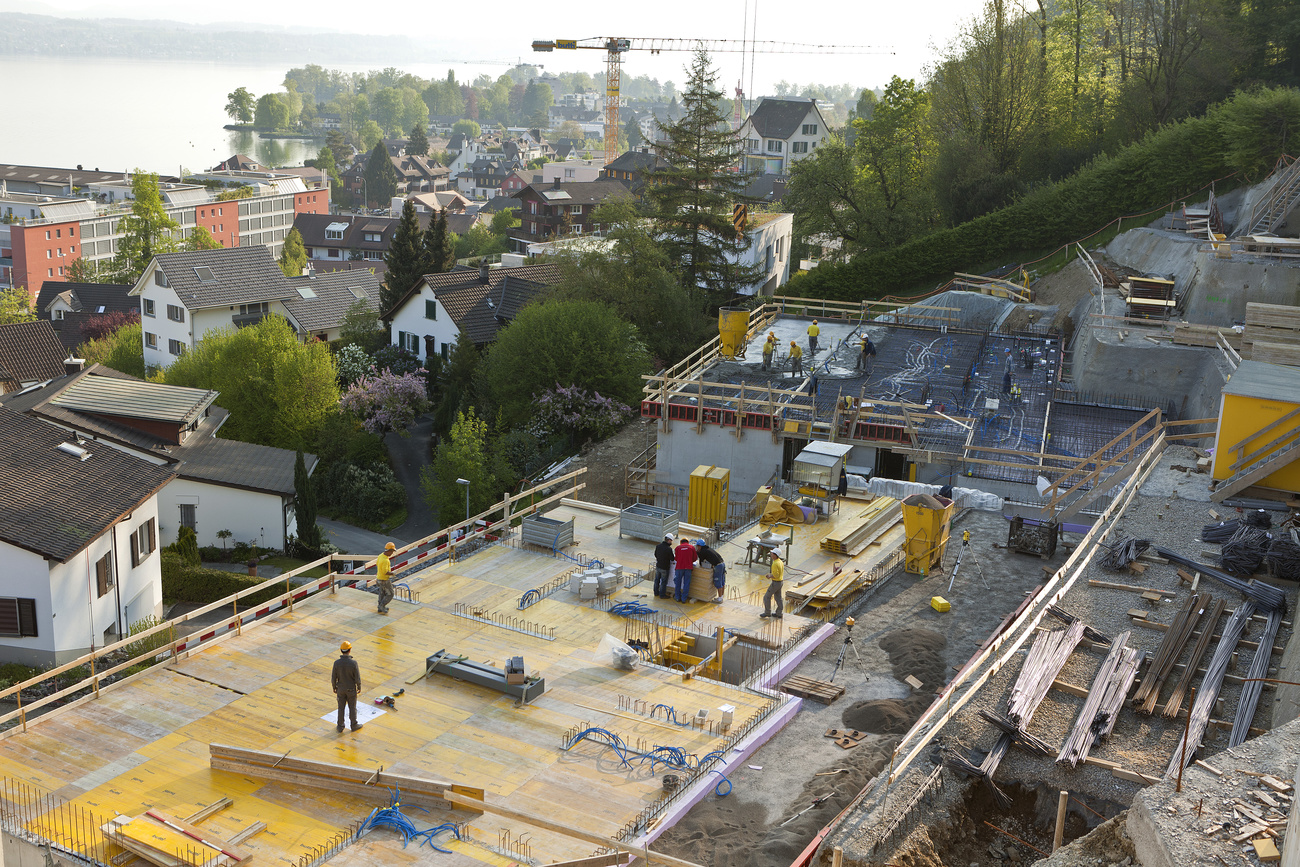
Switzerland misses 2020 emissions reductions goals

Greenhouse gas emissions fell slightly in Switzerland in 2019 but not enough for the country to meet its 2020 targets.
Switzerland was responsible for the emission of 46.2 million tonnes of CO2 equivalent in 2019, the Federal Office for the Environment said on Monday.
That was almost 300,000 tonnes fewer than in 2018 and 14% less than in 1990, the reference year for international climate goals. However, as predicted, it wasn’t enough to meet the country’s official 2020 targets, set at a 20% reduction of 1990 levels.
In the building and construction sector, emissions remained stable in 2019, at 34% less than in 1990, the environment office said. The harsh winter might well have led to a rise, it said, but thanks to better energy efficiency of buildings, this didn’t happen.
Industry and transport sector emissions also remained stable (14% down and 1% up on 1990 respectively). For the latter, a positive impact of more energy efficient vehicles on the road has been offset by the increased amount of travel, the environment office said.
Agriculture emissions fell slightly on the previous year and are now around 12% down on 1990 levels.

More
Switzerland misses its emissions targets
The environment office said stronger measures were still needed in order not to miss the next set of targets. Under international agreements Switzerland is to halve its 1990 emissions by 2030 and become climate neutral by 2050.
On June 13, voters will have their say on just such measures: a CO2 law ratified by parliament last year which foresees various new rules, including levies on fuel, taxes on airline tickets, and stricter standards for buildings.
The law, which is a key component of the country’s larger long-term climate strategy, was challenged to referendum by an interparty committee representing economic sectors including the petrol industry, transport and aviation, and construction.
Almost all political parties, as well as other segments of the economy, are in favour of the CO2 law. On Monday, launching its campaign ahead of the June vote, the Economiesuisse business federation called it a “good Swiss compromise package”.

More
Environment minister: climate strategy is ‘feasible and affordable’

In compliance with the JTI standards
More: SWI swissinfo.ch certified by the Journalism Trust Initiative

























You can find an overview of ongoing debates with our journalists here . Please join us!
If you want to start a conversation about a topic raised in this article or want to report factual errors, email us at english@swissinfo.ch.